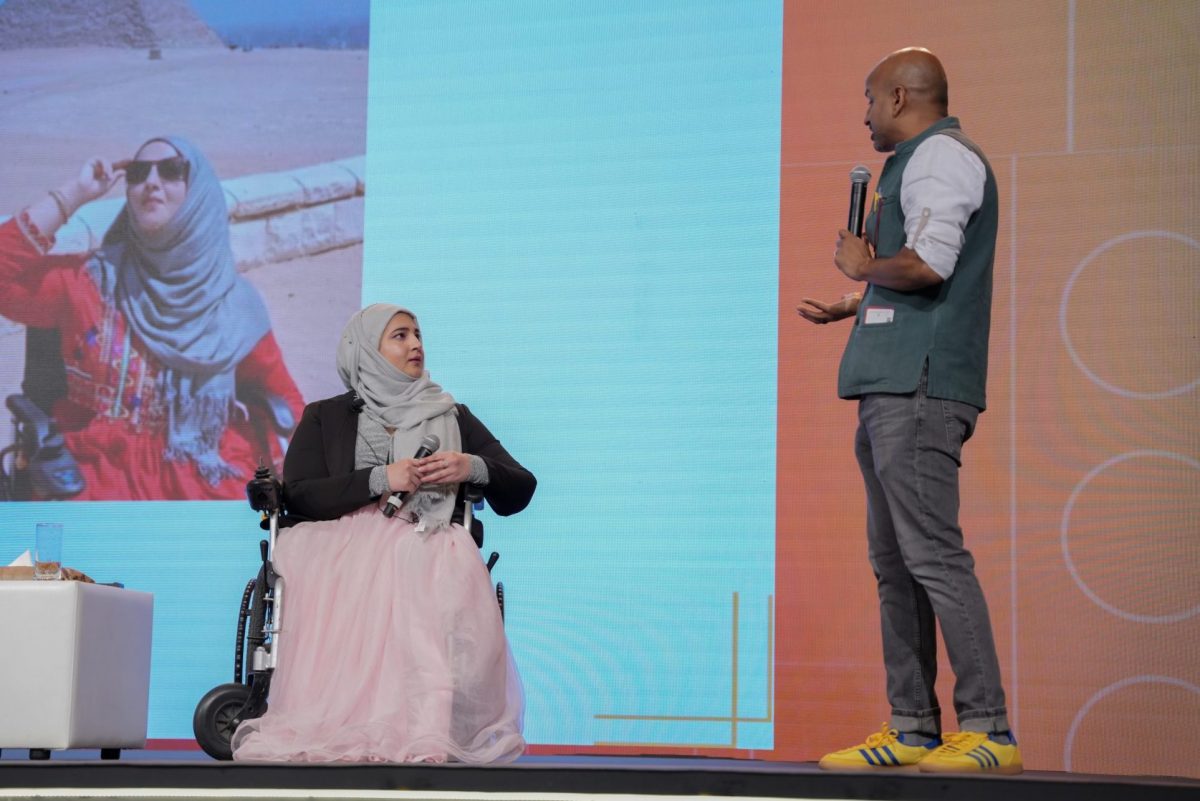Skift Take
Travelers with disabilities face far greater challenges than the travel industry lets on, and disability rights activist Tanzila Khan is calling for more communication, empathy and pricing fairness in the billion-person travel sector.
Selene Brophy
The journey to accessibility in travel begins with discussing inaccessibility.
These were the words of disability rights activist Tanzila Khan, who shared her views at the inaugural Skift Global Forum East in Dubai on Wednesday.
The World Health Organization estimates that 1.3 billion people, or 16% of the world’s population, currently live with severe disability – a figure that is growing due to the rise in non-communicable diseases and people living longer.
For Khan, the key to addressing challenges in this travel sector is to communicate and discuss the barriers, because the opportunity to effect change is huge.
Khan said travel industry leaders must work to eliminate what she calls the “disability tax” as they define the future of travel.
She gave the example of how, when she was travelling to Egypt with two friends who also use wheelchairs, they were forced to pay an upgrade to an accessible room to accommodate them both.
Empathy and communication are essential tools
“If we were able-bodied, we would have gotten a regular room. That difference, I call it the disability tax, and we as leaders have to mitigate that difference going forward as we step in because at the end of the day, we’re paying a lot more than able-bodied people would pay for services,” Khan said.
She added that empathy and communication are essential tools in shaping services and offerings for travelers with disabilities.
Khan touched on various aspects of the trip, from planning to actually traveling. Applying for a visa is already a huge hassle for people with disabilities, but he challenged his audience to think about what it would be like for people like them.
Her business trip to Ras Al Khaimah in 2017, a city renowned for nature, leisure and adventure, gave her a keen sense of community and empathy.
She decided to go to the beach during her break, but it proved to be quite a challenge.
She was only able to do it with the help of about seven people.
“That beach was so sandy, I couldn’t get anywhere near it. But here I had people doing it for me, carrying me, dragging me, pushing me. And one of them took pictures. Of course, we had to document all our efforts. Then we all brought me back. And one of them started washing my wheels.”
Khan explained that it was this sense of community that made it possible.
When the system doesn’t accommodate people with disabilities, the community steps in, she said, adding that it presents an untapped opportunity because these types of travelers often feel invisible and like a burden, or worse, a ghost.
Khan said its potential and power to bring about change should never be underestimated.
Photo credit: Disability activist Tanzila Khan and Skift CEO Rafat Ali on stage at Skift Global Forum East in Dubai.

